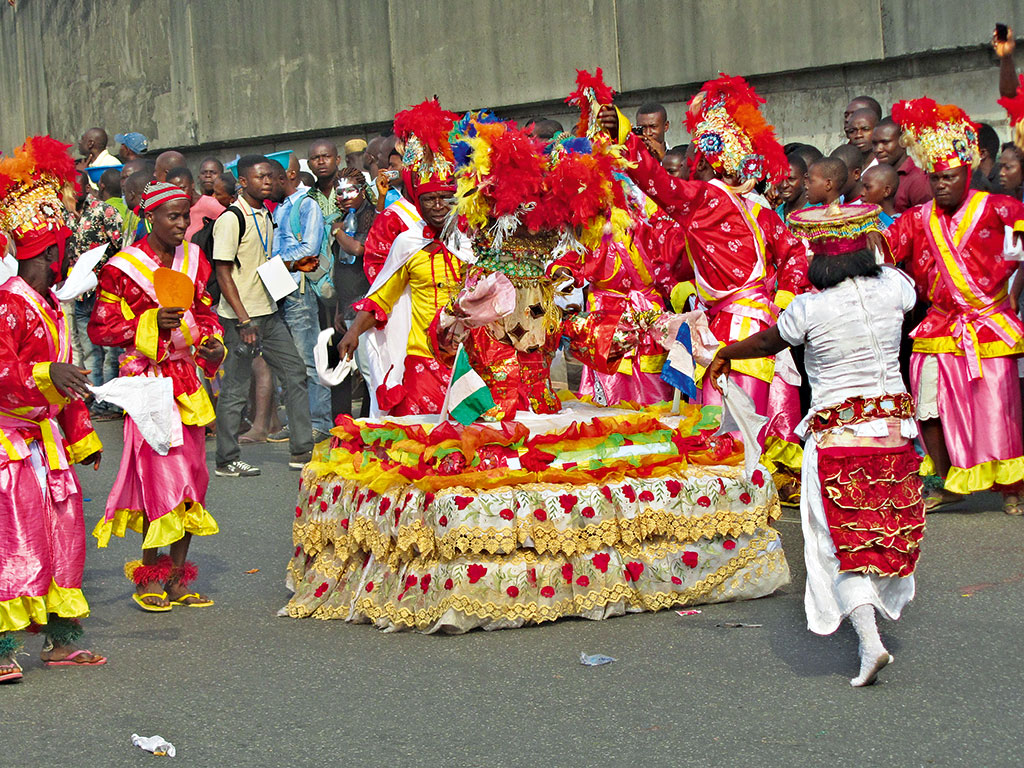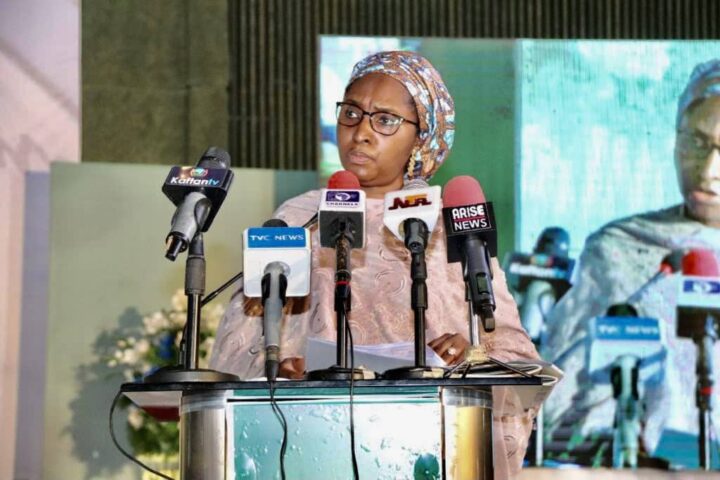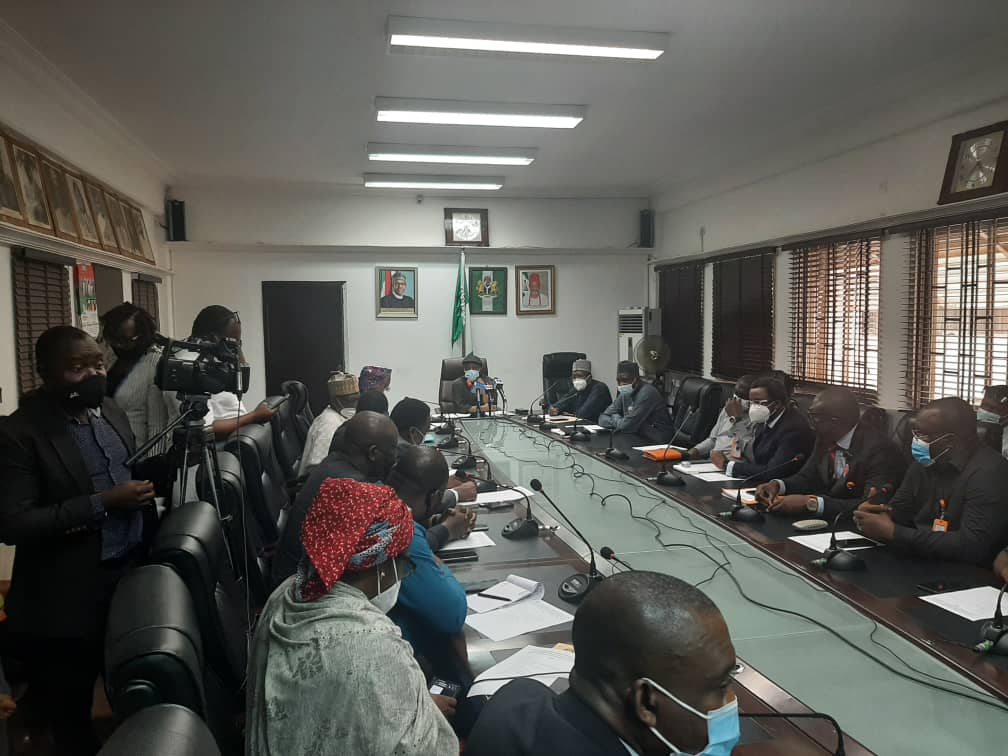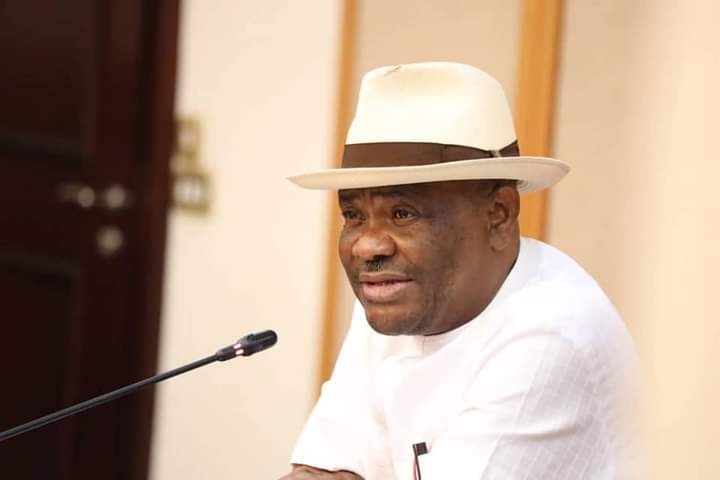President Muhammadu Buhari made one of the most down-to-earth statements of his presidency last Thursday, though by proxy. After meeting Nigerian security chiefs at the Aso Rock Villa, the National Security Adviser, (NSA) Babagana Monguno, claimed Buhari said that he dreaded failure in office, so much; and I dare literalize it, like leprosy. “And (President Buhari) also made it very, very (italics, mine) clear that he’s not ready to exit government as a failure,” Monguno said.
It was an opportunity for Monguno to thump the Buhari government’s chest. President Buhari, said Monguno, is very happy about the “tremendous success” he has achieved in the fight against insecurity. “It is evident that a lot of successes have been recorded,” Monguno, known for his bombasts, announced. He based these “successes” on what he called the “large numbers of people surrendering in the north-east as a consequence of the relentless efforts of the armed forces, intelligence and security agencies.” Monguno went further: The president had also been “briefed” on the “emergency situation” of the ravaging hunger in the land.
“As far as he is concerned, it’s also an emergency situation that people should not be left to wallow in hunger, and in despair, this is something that he’s also going to look into. And he’s going to use all the necessary, all the relevant tools at his disposal to address the issue of widespread hunger,” said the Nigerian topmost security chief.
Monguno is taking us to class this morning as he has provoked the need to interrogate the concept of failure. What is failure? At what point in life is someone said to have failed? Is it ennobling to fail or, put differently, is failure noble? Is there any aesthetics in failure? In other words, should those who fail see some glamour in failure, or more succinctly, is there a philosophy of failure?
Advertisement
Ivan Moris, in his The Nobility of Failure: Tragic heroes in the history of Japan, examines what leadership failure means. Originally published in 1975, the book is a biography, the chronicle of the lives and deaths of nine Japanese, notable figures through the ages, who lived between the 4th to the 20th centuries. Historical individuals they were, confronted by overwhelming life travails, rather than continue to glamorize a slipping life, they each took the easy exit out by each taking one of three options. One, accepting that life was cruel in its unpleasant verdict against them, some chose to be executed in the hot battleground; others elected to be eliminated by ritual sacrifice, while some gave selves up to wither off in exile.
The Nobility of Failure is a narration of the rise and fall of some greats, figures who towered and still tower over Japanese historical and literary landscapes. It began with a tragic tale similar to Shakespeare’s Hamlet, of the story of Prince Yamato Takeru who died amidst a royal riddle. From it, Morris examined the death of kamikaze pilots during the World War II, down to individuals who straddled the Japanese world like a typhoon, like Saigō Takamori. Most of the stories that engage the book are of power struggles that involved powerful clans in Japan. They range from narrations of tragic heroes who made huge success at war fronts but who, at the end of the day, suffered huge casualties in betrayals. The downfall of many of them was also due to the fact that they found themselves on the wrong sides of history while many others fell so poignantly because they surrounded themselves with fawners who merely told them what titivated their egos.
While examining what yardstick Nigerians will or have been using to determine who is a failed leader, the Japanese model should be interesting to us. Most of the stories examined by Morris were marked by the fickle nature of those close to these leaders and how they brought destruction their ways. From the book, you will get away with the impression that Japanese seem to prefer a noble loser to a vindictive winner, no matter the wrong side of history they belonged. Splattered all over the book are narrations of the exploits of warriors who though won wars but who, ages after, are labeled villains, reviled and scorned by their people.
Advertisement
Now, using the Monguno claim of a Buhari who doesn’t want to end his tenure of office a disaster, a tenure soon to end in less than two years time, how feasible is this claim? My departing point of analysis is this famous song by late pop diva and ex-Regent of Ikogosi in Ekiti State, Bunmi Olajubu. Sang in the early 1990s and entitled Bata Mi A Dun Ko ko Ka, this song articulates what, in grim terms, are the features of success and failure, especially in the cosmology of the Yoruba people.
In the enviable world of the been-tos of the 1960s and 1970s Nigeria, what distinguished this class of people, who were just arriving Nigeria from their search for the golden fleece abroad, among others, was their stiletto shoes which made ko-ko-ka sound as they approached. This was markedly different from the uninspiring noise made by the salubata slippers of those who had no attainment, who didn’t go to school and whose approaching walks as they plodded on, in Olajubu’s song, was signified by the mere onomatopoeic perere noises of their slippers.
Olajubu’s measurement of failure and success can be broken down to the philosophical cause and effect. If a child goes to school and aspires as his peers were doing, in the Yoruba of the time’s explanation of the roots of success, his shoes will ultimately produce the ko-ko-ka sound. If, on the reverse, the child neglects this ancient wisdom and joins bad gangs, his slippers will invariably bellow out the uninspiring and irritating perere noise. This Olajubu song, whose patent belonged to pre-colonial Nigerian Yoruba homes, was one of the teaching aids deployed during this period to inspire children to go to school. Another was also Minister of Lands and Labour in Western Nigeria in 1952 under Chief Obafemi Awolowo, Chief Joseph Folahan Odunjo’s poems in the Alawiye series which moulded most children of this period. These poems contained similar nuggets. If you see a multitude scorning education, don’t pattern your life after them; woe will betide such child, tears await a wandering child; so wrote Odunjo.
Using Olajubu as a paradigm and taking into consideration the Monguno’s claim of Buhari’s aversion for ending up in 2023 as a colossal failure, are the president’s shoes already sounding ko-ko-ka, making the perere noise or will ultimately do so?
Advertisement
Recently, I read Femi Adesina, Special Adviser on Media’s eulogy of his boss’ infrastructural interventions which he relishes as sine non qua non among contemporary Nigerian presidency. If you travel with Adesina on this route, you may easily be infected by this adumbration of what success is, assuming it to be the true meaning of success. Passengers who travel in Buhari’s commendable railway trains cannot but become prisoners of this mindset. For decades, successive governments watched the Nigerian railway system die.
Forget the insinuations that China is on a second slave raid of Africa and Nigeria is one of its captives with the multiple of billions incinerated to get these railways. Forget also that, judging by the age-long symbiotic graft culture of China and Nigeria, billions in graft must have lined the pockets of those entrusted the task of these railway projects. Forget also that though there is a railway route from Kaduna to Maradi in Niger Republic, there is not even a functional railway in Nigeria’s southeast, Buhari the master finisher, in the words of Adesina, has finished Nigeria with railways. Same suffices with the Second Niger Bridge, Lagos/Ibadan expressway and many others, a la Adesina. The question to ask is, are these what define a president as successful? Are they the indices, the observance of which makes a leader to escape being called a failure?
The truth is, as individuals, as a nation, as a state, as leaders, we determine whether we want to be successful, ab initio. In some other cases, we determine in our minds to be successful but unconscionably tread the path of failure. Take for instance the circumstance of young Muhammadu. History tells us that he started off as a cow boy, a herdsman if you like in today’s Katsina state. At a point in his life, he decided to tread a different route from his herder peers. He enrolled to go to school and passed out of secondary school. As he vied to write the Nigerian Army Qualifying exam in 1961 at age 18, his choice was to be a success as a military man. Coup had become Africa’s pastime then, with the overthrow of Togo’s Sylvanus Olympio and Nigeria’s Tafawa Balewa. Perhaps Buhari had in mind that someday he would be a General in the army and become a military Head of State. He was a success in this regard as he achieved the two ambitions. Many of his herder mates of the period in the village today cannot unbuckle his sandals and are spent and broken That is success.
Having been ridden roughshod upon in 1984 and torn off power like you do a sodden rag by Ibrahim Babangida and his coupist colleagues, Buhari apparently wanted to come back to power. Thrice when he was denied, he wept like a melancholic baby. Those who believed in him thought the tears were shed for Nigeria’s loss of his kind of leadership. Six years down the lane after he became president, the narration has assumed a teary dimension. The twine that binds Nigeria’s three dominant but fissiparous ethnic groups together has lost its tether under Buhari. Nigeria had never been this divided along ethnic fault lines since amalgamation and the challenges of the country had never received this level of ethnicization.
It will be selfish and uncharitable to lay all blames by the feet of Buhari. Nigeria was not wired to be peaceful by Britain. All that the colonialists wanted us to do, in the word of Immortal Bob Marley, was to “keep on fussing and fighting.” From Tafawa Balewa to Goodluck Jonathan, Nigerian rulers worsened the British quicksand Nigerian superstructure. But pre-2015, Nigerians still retained some modicum of affection, love and admiration for one another. All these things bright and beautiful, all our togetherness great and small, all the Nigerianness that were bright and beautiful, Buhari smashed them all into pieces. How did he do it?
His body language. Buhari is grossly insensitive to Nigeria’s diversity. First is that, most likely because he has complex for A-list aides, associates and ministers, his choice of cabinet members and aides is less than meritorious. He lusters in an assemblage of aides and advisors who have no minds of their own. Even Jonathan, with his burnished ignorance, didn’t possess that level of complex and surrounded himself with people who could hold their own in the world.
Advertisement
Second is Buhari’s rabid tribal bigotry. Pass mark for appointment into critical offices, for him, is region and religion. Daura is A-pass mark for Buhari. These less than forward-looking people he surrounds himself with, coupled with his limited oeuvre, is what signify what is called gravitation towards the path of failure. You cannot oscillate among a combine of failure and you won’t fail. For you to qualify to climb high in Buhari’s mind, you have to first and foremost be Fulani, from the North, then a Muslim. Thus, it is not unlikely that you will see passion-full people from Daura and environs clapping and saying rankadede to Buhari while he made a spiffy show of walking on Daura streets during Sallah.
The Controller General of Immigration, Muhammed Babandede, from Jigawa State, will be going on retirement on September 21, 2021, after initial extension of office by Buhari. Since its inception, the North has appropriated headship of that organization. When Buhari appoints Babandede’s successor presently, it will be another rankadede. That is how ethnic bigotry defines appointments into offices under Buhari, in contravention of global indices of adjudging leadership.
Advertisement
The Council on Foreign Relations (CFR), and the Harvard Kennedy School in the United States, for instance, have concluded that Nigeria was at a point of no return and manifesting all signs of a failed nation. By extrapolation, Buhari is a failed leader, they insinuated. In the research conducted by their senior fellow and former US Ambassador to Nigeria, John Campbell and founding director, Robert Rotberg of the Harvard Kennedy School’s Programme on Intrastate Conflict and president emeritus, World Peace Foundation, they even maintained that Nigeria under Buhari was in its final phase and would eventually collapse.
Many of the afflictions that today plague Nigeria under Buhari are unexampled in modern history. Naira is far becoming a replica of the Zimbabwean dollars under Bob Mugabe, falling unaided like an acrobat. Hunger, which Monguno referred to, is wracking the bellies of Nigerians and lack had never been this pervasive. Forget that chest-thumping by Monguno, insurgency has almost crippled the north, with some parts of Nigeria in the hands of these jihadist bombers. So when Buhari and his commissars flaunt infrastructure as index of his success in office, they are either talking out of naivety or plain wickedness.
Advertisement
If Buhari didn’t construct a single meter of railway, no single kilometer of road, nor even a length of bridge but strengthened our togetherness as a people, even if he, like those Morris’ Japanese tragic heroes, was regarded as an infrastructural failure, he would be a noble failure. If this then is so, Nigerians, like Japanese, would be said to prefer a noble loser to a vindictive loser.
Why did Expensive back the entrance?
Advertisement
With a feeling of revulsion and melancholy, the people of Akure, Ondo State, looked forward to marking the date, August 16, 2021. Thirty eight years before then, specifically on that day in 1983, the crème de la crème of the city had been murdered in cold blood in the federal elections of that year. Chief Robert Agbayewa, National Party of Nigeria (NPN) chairman; Babatunde Agunbiade, Majority Leader, Ondo House of Assembly; Olaiya Fagbamigbe, renowned publisher and member of the National Assembly, were all literally barbecued in daylight inferno due to their political leaning. Scores of houses were also torched at the heat of the inclement political anger against a suspected heist of election outcome. Since then, the people have carried the visible scars everywhere they went.
How were the people to know that another son of theirs, in the mould of these 1983 political colossuses, would be torched by the fire of death, right in their very before? Isaac Adedayo Omolafe, a.k.a. Expensive, a member of the House of Representatives representing Akure North and South, had suddenly slumped and died. He had woken up the day before hale and hearty, went on a round to inspect his piggery and by 3am the following morning, had been wheeled into the morgue.
I knew Expensive about 30 years ago at the Obanla area of the state capital while I was a student of the University of Lagos, being friend to one of his cousins. He bestrode that particular area like a panjandrum. Gradually, he grew into a household political name. By the time he became an elected council chairman of Akure South, Expensive’s grassroots reach had become legendary. Folks say that his strides in that council have not yet been surpassed. This renown was to later earn him a slot at the national parliament.
If Akure was granted its own governorship, Expensive sat on that seat. Affable and avuncular, he was loved by all due to his unequalled philanthropy and concern for the other person. No wonder our monarch, Oba Aladetoyinbo Aladelusi shut markets in his remembrance. Seldom had any death shaken Akure to its nadir like Expensive’s.
For Ooye Development Initiatives, (ODI) Akure’s combine of Young Turks, Expensive’s death was another mortal blow, coming after this year January’s sudden departure of its president and icon, Muyiwa Esho. In December, 2020, at the Headmaster’s House, Akure people’s unofficial secretariat in Ishopo, Esho and a few of us had sat at nocturne, presiding over the decapitation of some roasted venison. Momentarily backing the entrance, he suddenly stood up and gave all gathered a nugget: never ever back the entrance. It could be lethal. Esho and Expensive seemed to have backed the entrance and thus allowing death to sneak in on them.
May the souls of these great sons of Akure rest in peace.
Views expressed by contributors are strictly personal and not of TheCable.
Add a comment







